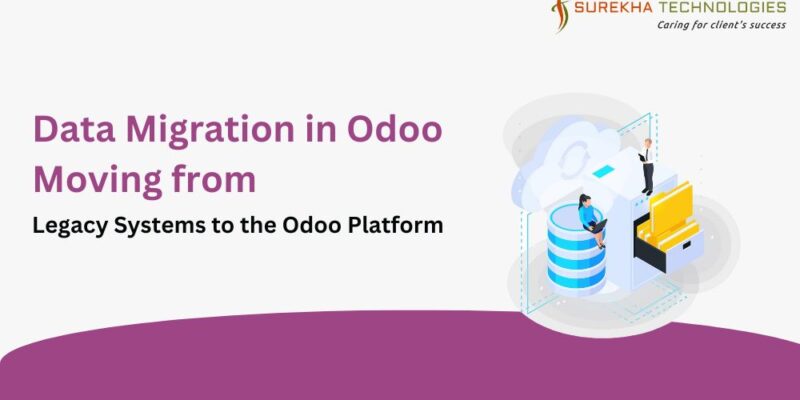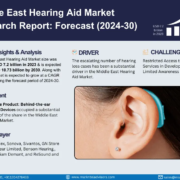
Migrating data from legacy systems to a modern platform like Odoo is a critical step for organizations looking to streamline their operations and leverage advanced functionalities. Legacy systems, while once cutting-edge, often become outdated, difficult to maintain, and incompatible with the demands of contemporary business environments. Moving to Odoo ERP not only modernizes your infrastructure but also enhances operational efficiency, scalability, and overall business agility. This guide explores the intricacies of data migration in Odoo and how organizations can make a smooth transition.
Understanding the Need for Data Migration
Legacy systems often suffer from several limitations, such as high maintenance costs, lack of support, and outdated technology stacks. These systems are usually not integrated, leading to data silos, inefficiencies, and inaccuracies in reporting. Transitioning to Odoo, a robust and comprehensive ERP platform, offers numerous advantages, including integrated workflows, real-time data access, and enhanced automation capabilities. Data migration is a pivotal part of this transition, as it involves transferring critical business data such as customer information, inventory records, financial data, and more from the legacy systems to the Odoo platform.
Planning the Data Migration Process
Successful data migration in Odoo requires meticulous planning and a clear strategy. The key to a smooth migration lies in understanding the specific needs of your business and the intricacies of your legacy systems. Here’s a step-by-step overview of how to approach the data migration process:
- Assessment and Preparation: Begin by conducting a thorough assessment of the existing data. This involves identifying the types of data to be migrated, understanding data formats, and evaluating data quality. It’s essential to clean and validate the data before migration to ensure that only accurate and relevant information is transferred to Odoo. This stage also includes identifying data redundancies and inconsistencies that need to be resolved.
- Defining Migration Scope and Objectives: Clearly outline the scope of the data migration project. Define which data sets need to be moved to Odoo and establish objectives for what the migration should achieve. This step helps in setting realistic expectations and avoiding scope creep. It’s crucial to decide whether to migrate all historical data or just a subset that is crucial for ongoing operations.
- Choosing the Right Tools and Methodologies: Odoo provides various tools and connectors that facilitate data migration. These include built-in import and export features, APIs, and third-party migration tools that can handle complex data transformations. Selecting the appropriate tools and methodologies depends on the volume and complexity of your data, as well as the specific version of Odoo you are migrating to.
- Mapping Data Fields: Data mapping is a critical step where you match data fields from the legacy system to the corresponding fields in Odoo. This ensures that data is transferred accurately and fits within the structure of the new system. Custom fields in Odoo can be created if the legacy data doesn’t fit perfectly within the standard fields.
- Data Transformation and Cleansing: Data transformation involves converting legacy data into formats that are compatible with Odoo. This may include reformatting dates, changing data types, and consolidating data from multiple sources. Cleansing ensures that the data is accurate, consistent, and free of errors, which is crucial for maintaining data integrity in the new system.
- Testing the Migration Process: Before the full-scale migration, it’s important to run tests to ensure that the data transfer process works as expected. Testing involves migrating a small subset of data and validating it within Odoo to check for errors or mismatches. This phase allows you to fine-tune the migration scripts and address any issues before executing the full migration.
- Executing the Full Migration: Once testing is complete and any issues have been resolved, the full data migration can be executed. It’s recommended to perform this during a period of low system activity to minimize disruptions. Continuous monitoring during the migration helps in quickly identifying and resolving any issues that arise.
- Post-Migration Validation and Optimization: After the migration is complete, it’s essential to validate the data to ensure it has been accurately transferred and is functioning correctly within Odoo. This involves checking data integrity, testing system performance, and ensuring that business processes are running smoothly. Post-migration optimization may also include fine-tuning configurations and customizations in Odoo to better suit your business needs.
Overcoming Common Challenges in Odoo Data Migration
Data migration can be fraught with challenges, particularly when dealing with legacy systems that have complex data structures and outdated technologies. Here are some common challenges and tips on how to overcome them:
- Data Quality Issues: Legacy data may contain errors, duplicates, or inconsistencies. Addressing these issues through data cleansing and validation is critical to ensure a successful migration.
- Complex Data Mapping: Matching data fields between legacy systems and Odoo can be complex, especially if the legacy system uses custom fields or unique data structures. Careful planning and the use of specialized migration tools can help simplify this process.
- Downtime and Disruptions: Minimizing system downtime during migration is crucial for business continuity. Planning the migration during off-peak hours and thoroughly testing the process beforehand can help reduce disruptions.
- Change Management: Transitioning to Odoo involves not just a technical shift but also changes in business processes. Effective change management strategies, including user training and clear communication, are essential for a smooth transition.
The Role of Odoo Development in Data Migration
Engaging a professional Odoo development team can greatly enhance the success of your data migration project. Odoo developers have the expertise to handle complex data structures, customize the platform to fit unique business needs, and ensure that the migration is executed efficiently. They can also develop custom scripts and tools to automate parts of the migration process, reducing manual effort and minimizing the risk of errors.
Leveraging Odoo ERP Development for Future Growth
Migrating to Odoo is not just about moving data; it’s about setting the stage for future growth. Odoo ERP development opens up new possibilities for automation, analytics, and integration, enabling businesses to operate more efficiently and make data-driven decisions. By choosing Odoo, organizations can benefit from a flexible, scalable, and comprehensive ERP solution that evolves with their needs.
Odoo development services offer customization options that allow businesses to tailor the platform to their specific requirements, whether it’s adding new modules, integrating with third-party applications, or developing entirely new functionalities. This flexibility is one of the key reasons why Odoo stands out as a leading ERP solution for businesses of all sizes.
Conclusion
Data migration in Odoo is a transformative process that requires careful planning, precise execution, and ongoing optimization. By moving from legacy systems to the Odoo platform, businesses can unlock the full potential of their data, streamline operations, and gain a competitive edge in the market. Whether you are looking to enhance your operational efficiency, integrate disparate systems, or leverage advanced analytics, Odoo ERP development offers a comprehensive solution to meet your needs.
Investing in Odoo development and partnering with experienced Odoo consultants can ensure a seamless migration process and set your organization on the path to success with a modern, integrated ERP platform. Embrace the future of business management with Odoo and take the first step towards transforming your legacy systems into a dynamic, efficient, and scalable enterprise solution.











